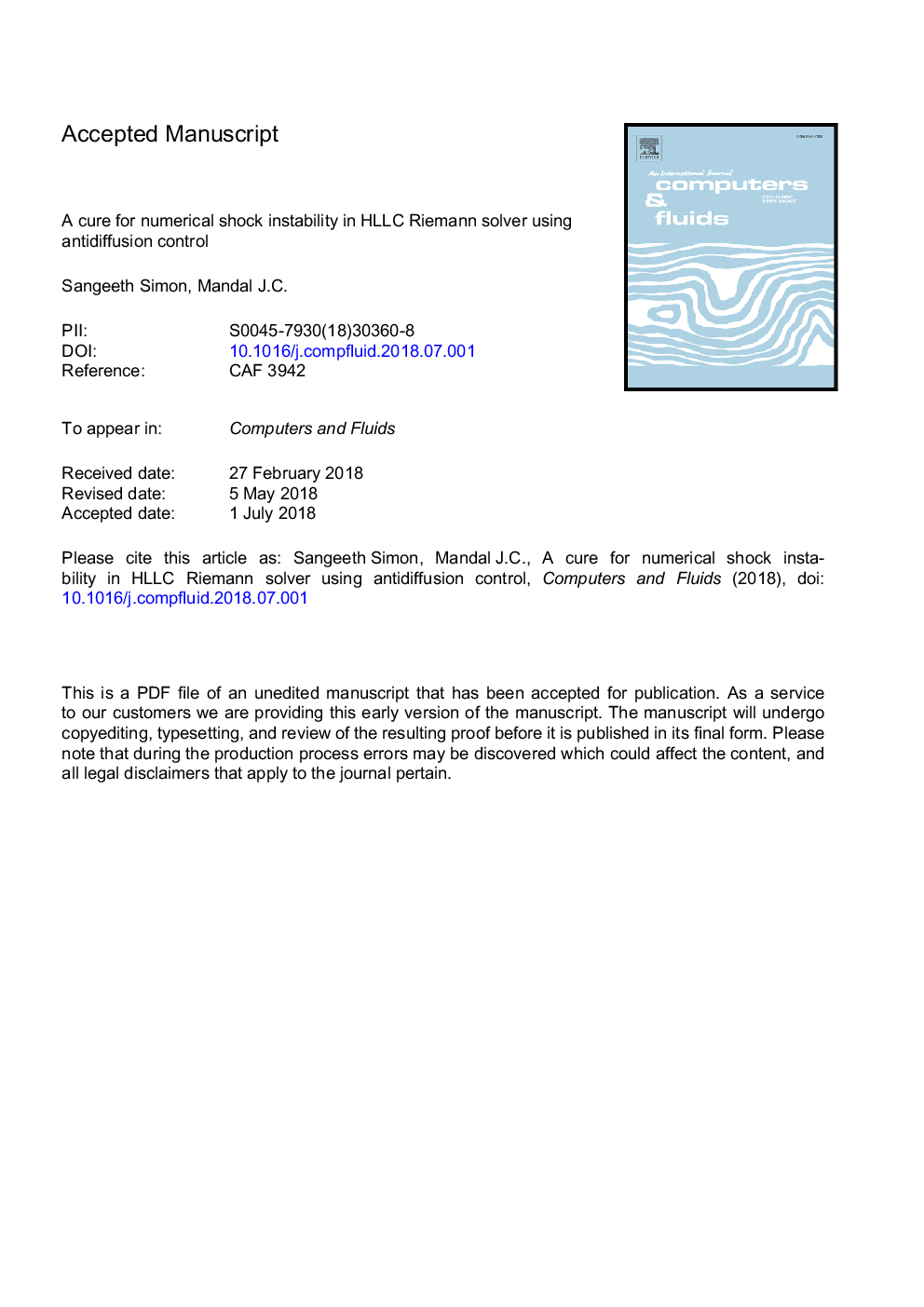| Article ID | Journal | Published Year | Pages | File Type |
|---|---|---|---|---|
| 11003781 | Computers & Fluids | 2018 | 38 Pages |
Abstract
Various forms of numerical shock instabilities are known to plague many contact and shear preserving approximate Riemann solvers, including the popular Harten-Lax-van Leer with Contact (HLLC) scheme, during high speed flow simulations governed by the Euler system of equations. In this paper we propose a simple and inexpensive novel strategy to prevent the HLLC scheme from developing such spurious solutions without compromising on its linear wave resolution ability. The cure is primarily based on a reinterpretation of the HLLC scheme as a combination of its well-known diffusive counterpart, the HLL scheme, and an antidiffusive term responsible for its accuracy on linear wavefields. In our study, a linear analysis of this alternate form indicates that shock instability in the HLLC scheme could be triggered due to the unwanted activation of the antidiffusive term appearing in its mass and interface-normal momentum flux component discretizations on interfaces that are not aligned with the shock front. This inadvertent activation results in weakening of the favourable dissipation provided by its inherent HLL scheme and causes unphysical mass flux variations along the shock front. To mitigate this, we propose a modified HLLC scheme that employs a simple differentiable pressure-ratio based multidimensional shock sensor to achieve smooth control of these critical antidiffusive terms near shocks. Using a linear perturbation analysis and a matrix based stability analysis, we establish that the resulting scheme, called HLLC-ADC (Anti-Diffusion Control), is shock stable over a wide range of freestream Mach numbers. Results from standard numerical test cases demonstrate that the HLLC-ADC scheme is indeed free from the most common manifestations of shock instability including the Carbuncle phenomenon without significant loss of accuracy on shear dominated viscous flows.
Related Topics
Physical Sciences and Engineering
Engineering
Computational Mechanics
Authors
Sangeeth Simon, J.C. Mandal,
